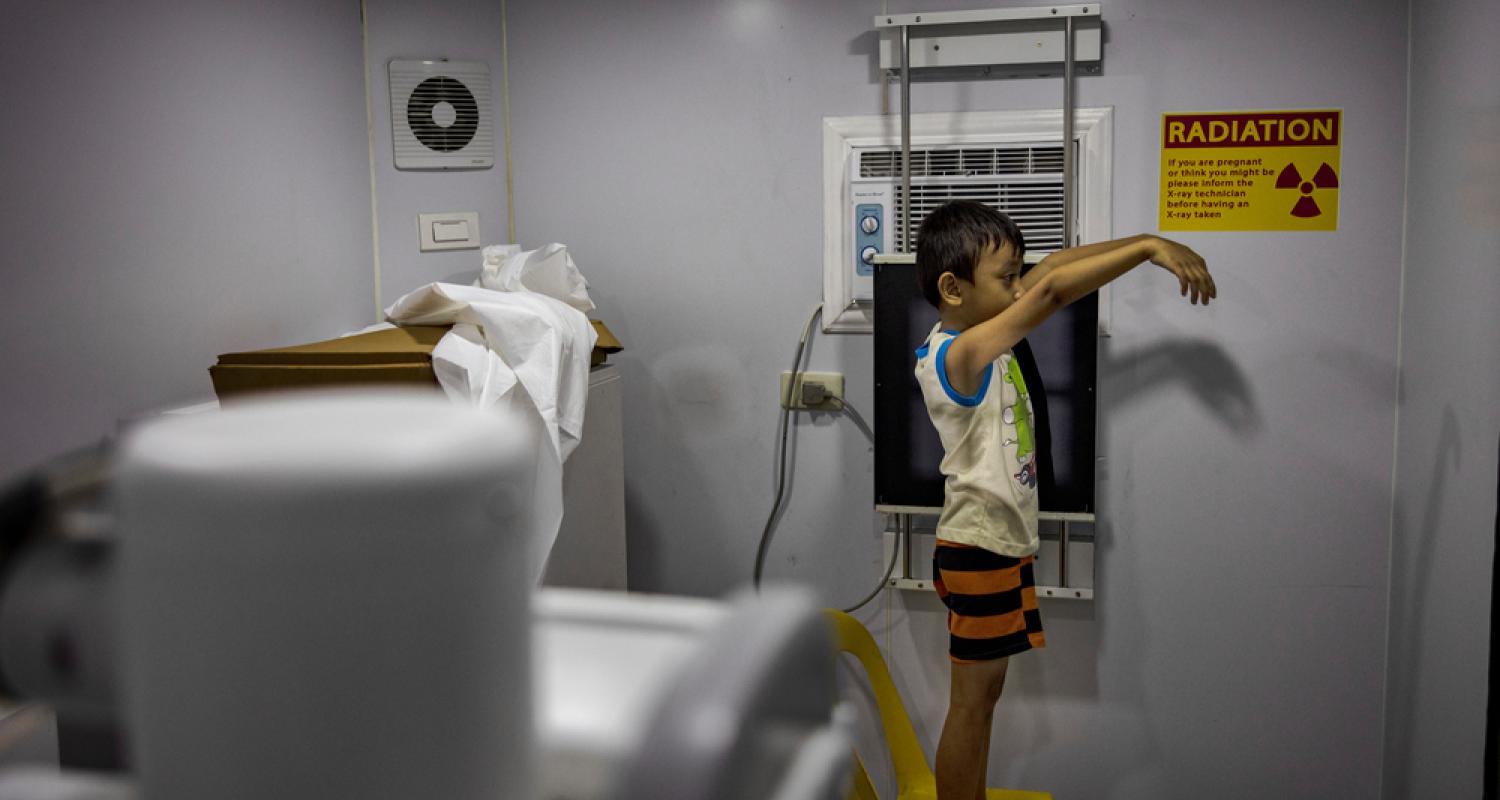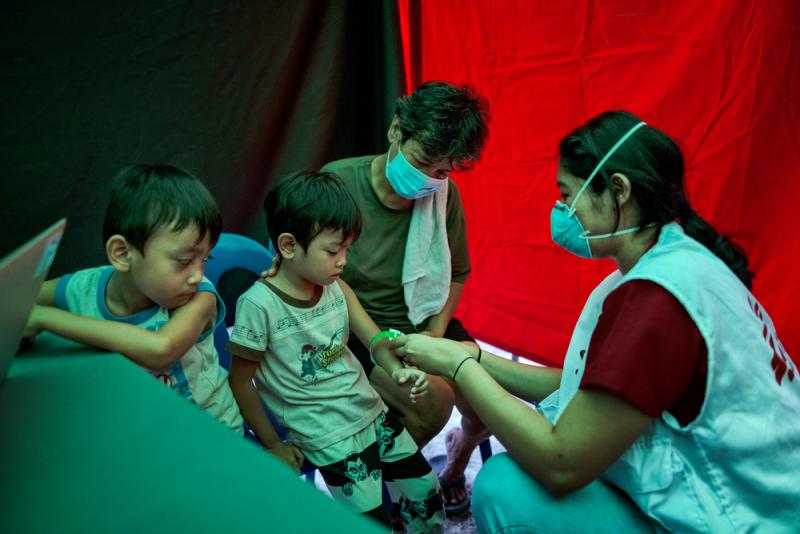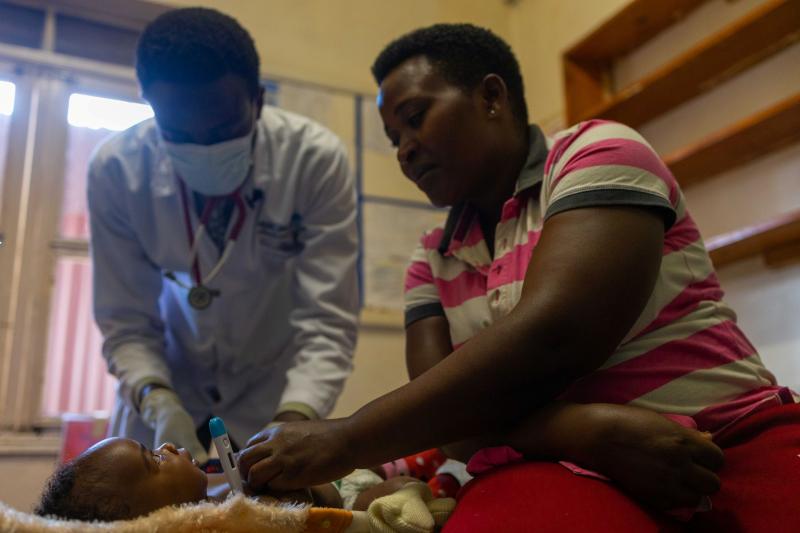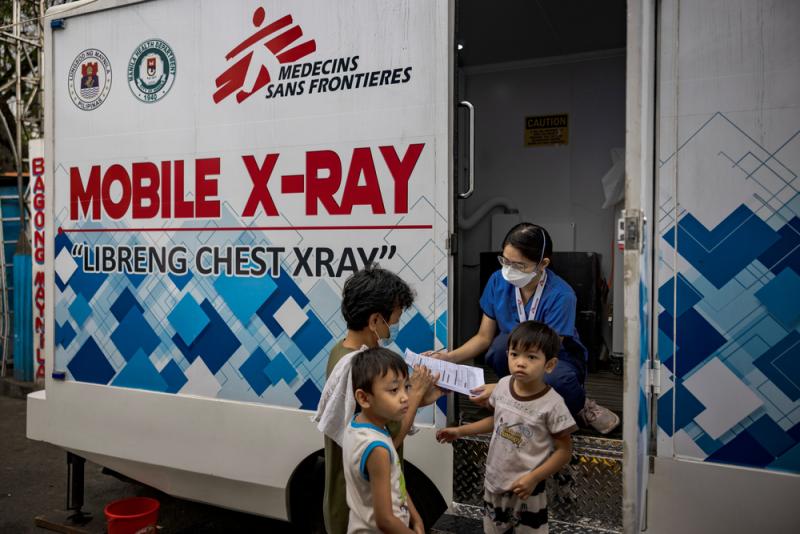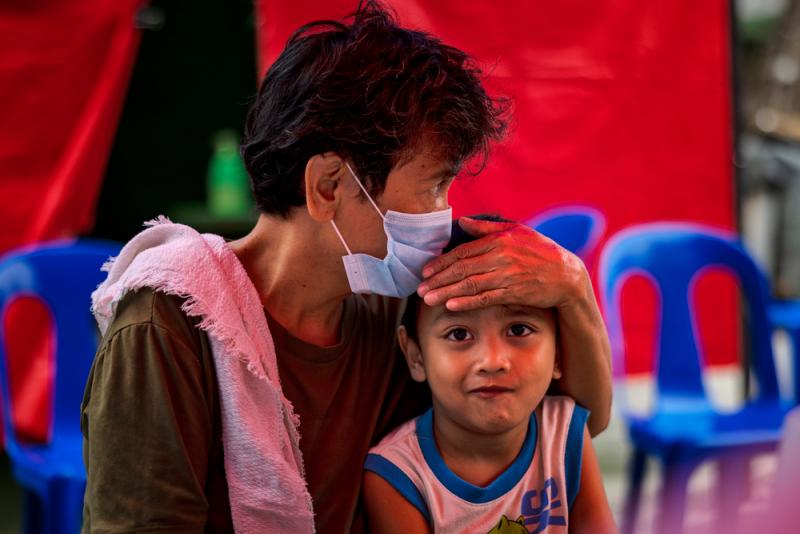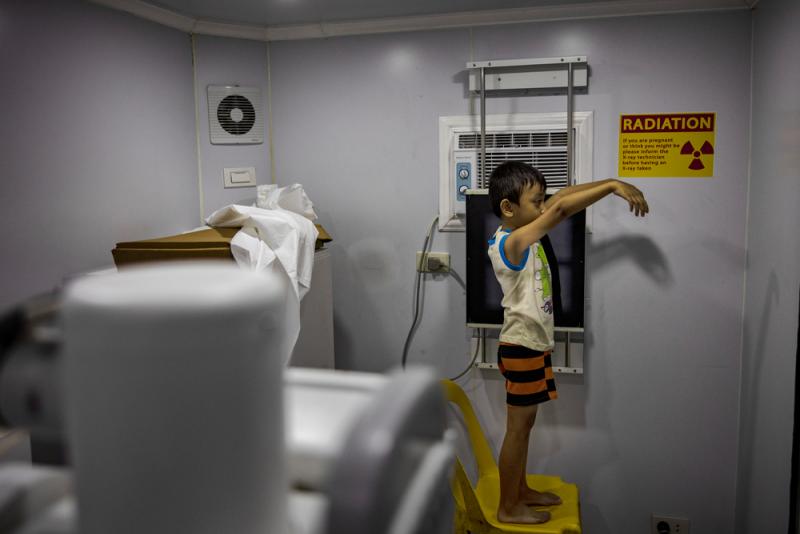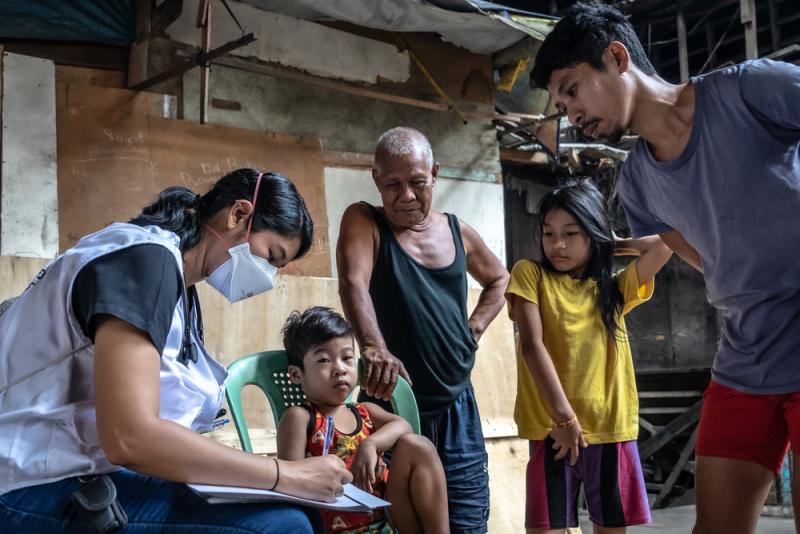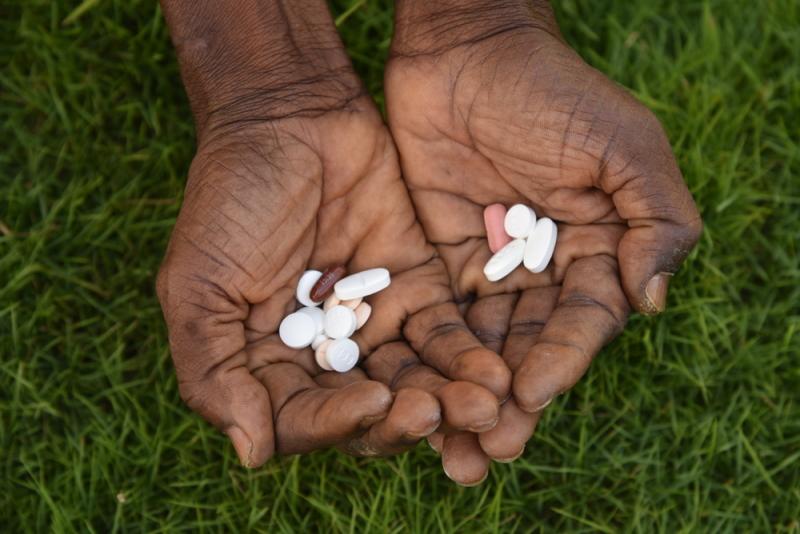Latest update
Every 3 minutes, a child dies of TB. The World Health Organization (WHO) estimates that 1.25 million children and young adolescents (0-14 years) fall ill with TB each year, but that only half of these children are diagnosed and treated. In 2022, WHO revised its guidance for the management of children and adolescents with TB, which if adopted and implemented, could drastically improve care and save lives.
The Doctors Without Borders project TACTiC - Test, Avoid, Cure TB in Children, is implementing the new WHO recommendations in MSF programmes in over a dozen countries in Africa and Asia.
In 2022, there were 214,000 children who died due to tuberculosis (TB). Most children with TB are never diagnosed, and 96 per cent of children who die from TB never received appropriate treatment.
Children are already highly vulnerable to TB. Children with weakened immune systems, for instance due to HIV infection or malnutrition, are the most vulnerable, hence will be disproportionately affected by disruption of TB, HIV and nutrition services.
The US funding cuts that have impacted the community-based services will have a disproportionate effect on children, leading to more children with TB and more avoidable deaths. Funding decisions should not cost children their lives.
What is tuberculosis?
Tuberculosis (TB) is an infectious disease caused by a bacterium called Mycobacterium tuberculosis that mainly affects the lungs.
When someone who is sick with TB disease of the lungs or throat coughs, speaks, laughs, sings, or sneezes, the TB bacteria passes from them through the air. When another person breathes them in, the bacteria can settle in the lungs and begin to grow.
People with TB disease are most likely to spread it to people they spend time with on a daily basis, such as family members, friends, and co-workers or schoolmates.
Anybody can get tuberculosis.
Most of the people who develop TB disease each year are in 30 high TB burden countries, which accounted for 87% of the global total in 2023. Five countries accounted for 56% of the worldwide total: India (26%), Indonesia (10%), China (6.8%), the Philippines (6.8%) and Pakistan (6.3%). (Source: WHO)
In 2023, an estimated 10.8 million people fell ill with TB worldwide: 6 million men, 3.6 million women and 1.3 million children and young adolescents. TB is present in all countries and age groups.
In 2023, 1.3 million children fell ill with TB globally. Child and adolescent TB is often overlooked by health providers and can be difficult to diagnose and treat.
In 2023, TB caused an estimated 1.25 million deaths.
TB is curable and preventable.
An estimated US$ 22 billion is needed annually for TB prevention, diagnosis, treatment and care to achieve the global target agreed at the 2023 UN high level-meeting on TB.
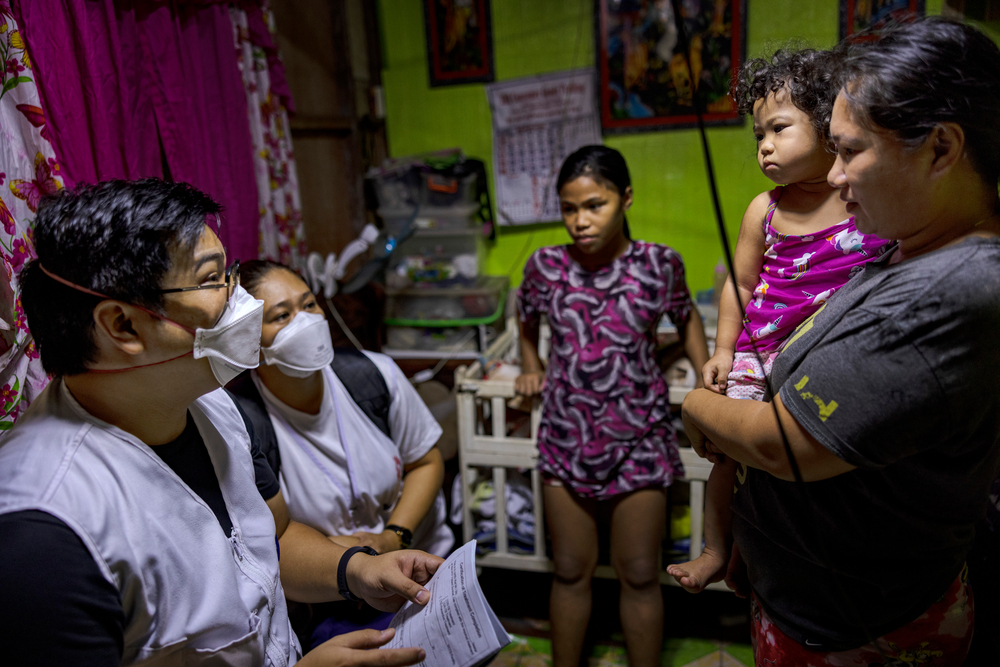
In 2023, 22,700 people in the care of Doctors Without Borders around the world were started on first-line TB treatment, including 2,590 people with DR-TB. We are working closely with national TB programs, ministries of health, and other key stakeholders in our various projects around the world to ensure access to TB treatment.
- Philippines
More than 650,000 people live clustered in Tondo, an area of about nine square kilometers stretching between the port and the business district of Manila. It is one of the most densely populated slums in the world. For nearly two years, strict anti-COVID-19 measures contributed to overcrowding, with neighborhoods and homes completely confined, and no one allowed out for days at a time.
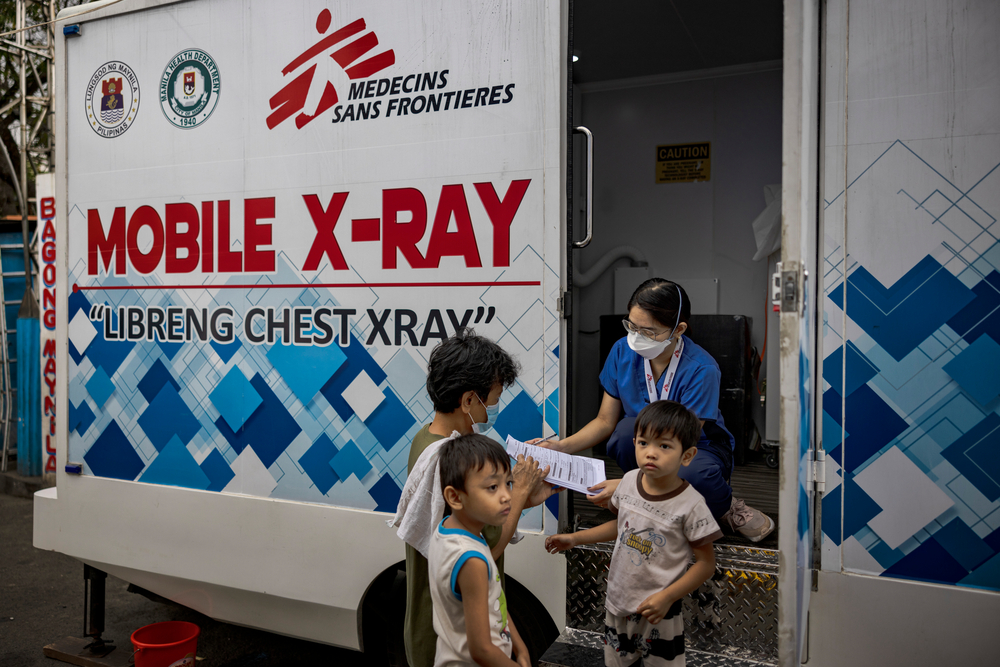
Doctors Without Borders launched a TB active case finding project in collaboration with the Manila Department of Health. Since May 2022, Doctors Without Borders teams have been visiting the different barangays (neighborhoods) of Tondo with a mobile x-ray truck. The aim is to make screening accessible and available as close as possible to where community members live and work. As of March 2023, the project has screened a total of 22,631 patients, and 4.6% of all of the people have been found positive on GeneXpert for TB.
What is Doctors Without Borders doing about tuberculosis?
Doctors Without Borders has been involved in tuberculosis care for over 30 years and opened its first programmes to treat multidrug-resistant TB in 1999. Doctors Without Borders has TB treatment projects in 30 countries; it is one of the largest non-governmental providers of treatment for drug-resistant TB. In 2023, 2,700 people started on drug-resistant TB treatment in Doctors Without Borders programmes.
The settings in which Doctors Without Borders provides TB care vary widely. They include urban slums in the Philippines, and countries with insecure contexts such as Myanmar and Afghanistan.
Innovating and advocating for TB
In addition to providing care, Doctors Without Borders also supports TB research and clinical trials, such as the endTB clinical trial.
- endTB Clinical Trials
Roughly half a million people fall sick with multi-drug resistant tuberculosis or rifampicin-resistant tuberculosis (MDR/RR-TB) each year, and many die from it.
MDR/RR-TB is a disease caused by a TB bacterium that is resistant to rifampicin, one of the most powerful first-line antibiotics, plus/minus resistance to isoniazid. Though a range of MDR-TB regimens are now in use around the world, many people are still treated with conventional treatments that are long (up to 24 months), ineffective (only 59% treatment success in 2018), and often cause terrible side effects, including acute psychosis and permanent deafness. Patients on these regimens must ingest up to 14,000 pills over the full course of treatment, and some have to endure months of painful, daily injections.
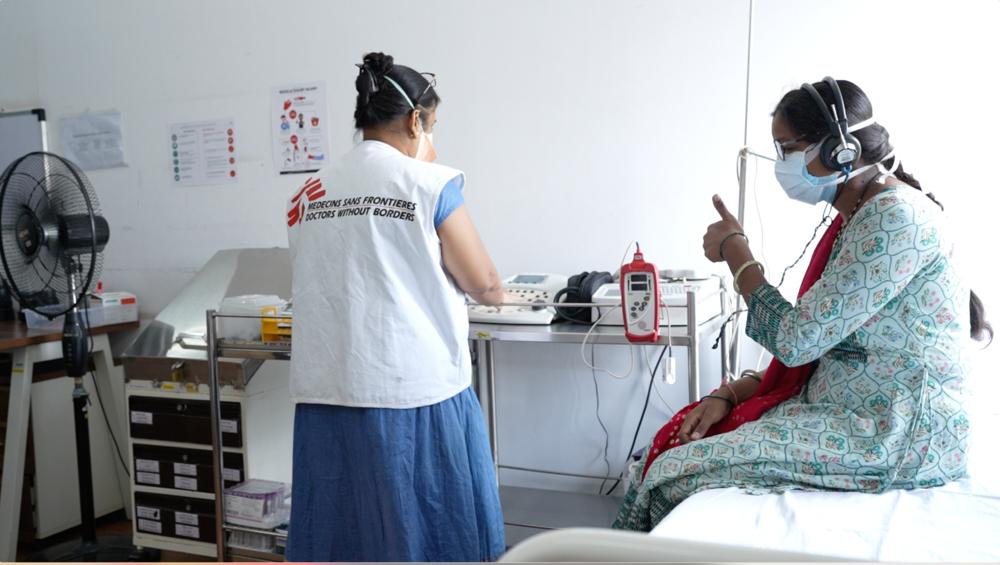
endTB is a seven-year partnership among Partners In Health (PIH), Doctors Without Borders, Interactive Research & Development (IRD) -funded by Unitaid- that has aimed to find shorter, less toxic and more effective treatments for MDR/RR-TB. In 2023, the results of endTB’s first clinical trial revealed evidence to support the use of at least three new shorter, oral drug regimens. These were officially recommended by the World Health Organization (WHO) in August 2024.
Meanwhile, the endTB consortium was running a second clinical trial, endTB-Q, which began in 2020 and tackled an even more difficult-to-treat form of MDR-TB, pre-extensively drug-resistant TB (pre-XDR-TB). Pre-XDR-TB is resistant to the most effective anti-TB drugs, including rifampicin (the cornerstone of regular TB treatment) as well as a class of drugs (fluoroquinolones) that is key in the treatment of TB resistant to rifampicin. Pre-XDR-TB has historically been treated with regimens that are tough to tolerate, lasting up to 2 years and achieving cure in less than half of cases.
Completed in 2024, endTB-Q was a phase III, randomized, controlled and open-label clinical trial. The study included 323 participants from six countries -India, Kazakhstan, Lesotho, Pakistan, Peru and Vietnam. It assessed the safety and efficacy of a combination of bedaquiline and delamanid with older drugs (clofazimine and linezolid) for the first time. The endTB-Q team presented preliminary results of the trial at the Union World Conference on Lung Health on November 13, 2024.
